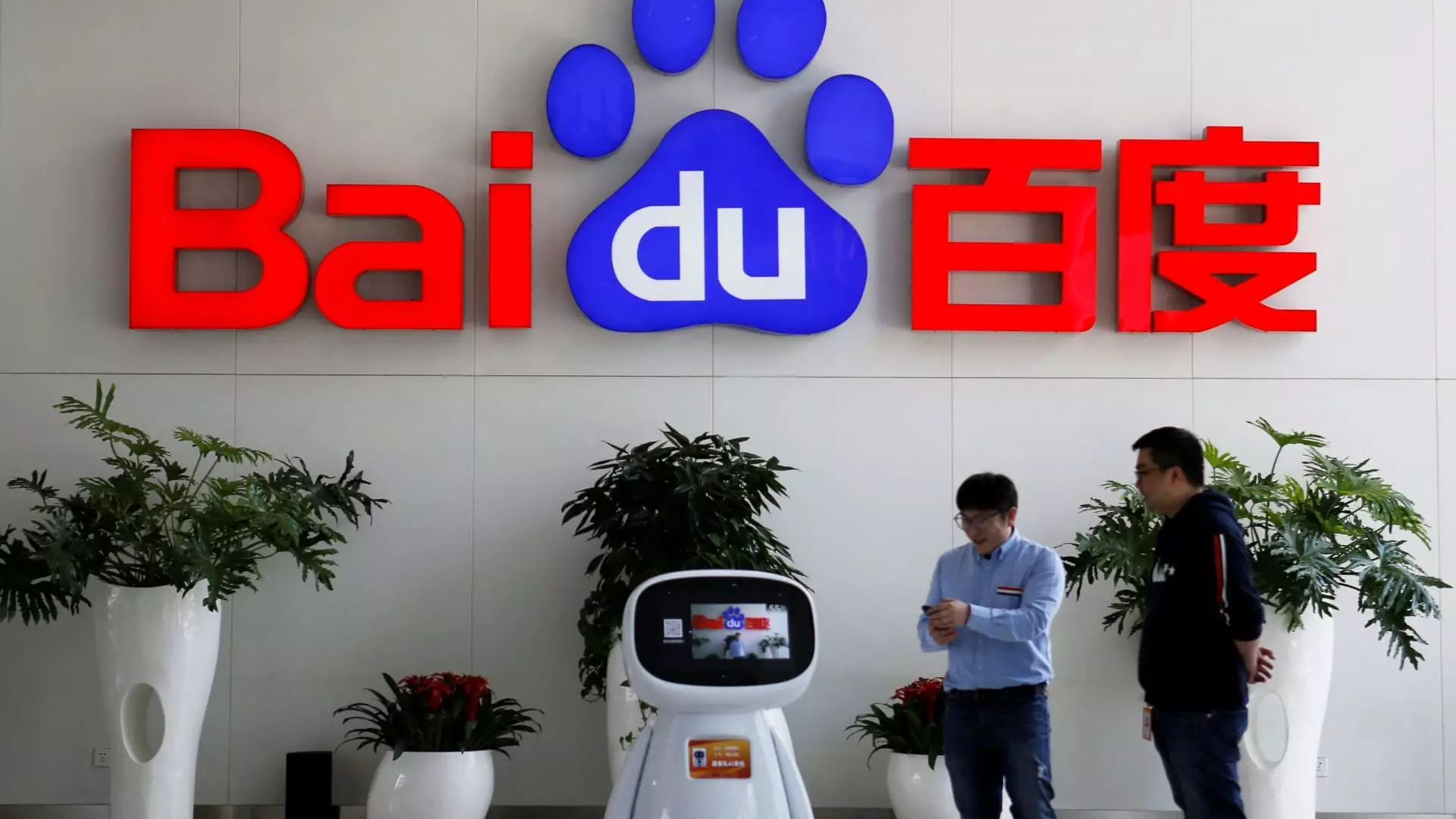Artificial Intelligence (AI) continues to evolve rapidly, with companies around the globe striving to innovate and secure their positions in a market that is becoming increasingly competitive. Among the frontrunners in this race is Baidu, a prominent tech company from China, which is reportedly set to unveil its next-generation AI model, Ernie 5.0, by the end of this year. This announcement reflects not only Baidu’s ambition to maintain its relevance in the AI testing grounds but also highlights the significant upheaval being caused by emerging players in the industry.
At the heart of Baidu’s upcoming model is the concept of multimodal AI. This advanced form of artificial intelligence leverages various types of data inputs—text, audio, images, and even video—to create a more cohesive and comprehensive user experience. The ability to transform one form of media into another (e.g., converting written text into video) represents a landmark advancement in AI capabilities. Such innovations could empower users and businesses to interact with technology in unprecedented ways, potentially enhancing productivity across numerous sectors.
While the specifics of Ernie 5.0’s features remain under wraps, the expectation is that it will boast substantial upgrades over its predecessor, which has already made significant strides in understanding and generating natural language. The foundation model’s versatility means that it can tackle diverse tasks ranging from generating text and images to facilitating intricate conversations in an organic manner. As these technologies develop, they have the potential to become invaluable tools across various industries, reinforcing the need for continuous research and development.
The race to develop groundbreaking AI models pits Baidu against both domestic and international competitors. Recently, the Chinese startup DeepSeek made headlines by launching an open-source AI model that has reportedly outperformed OpenAI’s ChatGPT in certain reasoning tasks, while also being more cost-effective. This disruption has contributed to a broader concern in the stock market, particularly affecting the technology sector. Companies like Alibaba and ByteDance have also entered the fray, posing challenges to Baidu’s market position.
Baidu’s past performance illustrates the challenges it faces: while it was the first major Chinese firm to release a product akin to ChatGPT, its initial momentum has waned as competing products emerged and gained traction. Share price fluctuations among Chinese tech giants further highlight the diverse strategies companies are employing to capitalize on the AI boom, with Baidu’s stock lagging in comparison to its rivals.
Baidu’s CEO, Robin Li, spoke at the World Governments Summit in Dubai about the monumental potential for reducing inference costs associated with foundation models by over 90% within a year. Such advancements in cost-efficiency can lead to substantial increases in productivity, reflecting the profound implications of innovation in this space. Lowering costs is not only beneficial for Baidu; it potentially levels the playing field for smaller players who could leverage this reduction to provide competitive services at lower prices.
Baidu’s prior updates to its AI tools, such as the well-received enhancements to its Wenku platform—which sprouted a 60% growth in paid users—underscore the company’s push towards creating real-world applications for its AI technologies. Features like AI-assisted presentations that utilize financial data are signals of how companies like Baidu are not merely creating technology for technology’s sake, but are instead prioritizing practical applications that support users in their daily tasks and business endeavors.
As Baidu gears up for the release of Ernie 5.0, questions remain about how it will effectively differentiate itself from both established players and newcomers. The wider landscape remains tumultuous, particularly as other powerhouses like OpenAI continue to innovate. OpenAI’s recent updates, alongside deepening consumer expectations, indicate that the necessity for continuous enhancement in AI capabilities is critical.
While Baidu’s goals are ambitious, the reality is that innovation in AI is a constantly evolving challenge. It requires not just technical advancements but also a simplistic understanding of user needs and market dynamics. As the landscape shifts, Baidu and its competitors must remain agile, focused and forward-thinking to not just survive, but thrive in the burgeoning AI ecosystem.


Leave a Reply